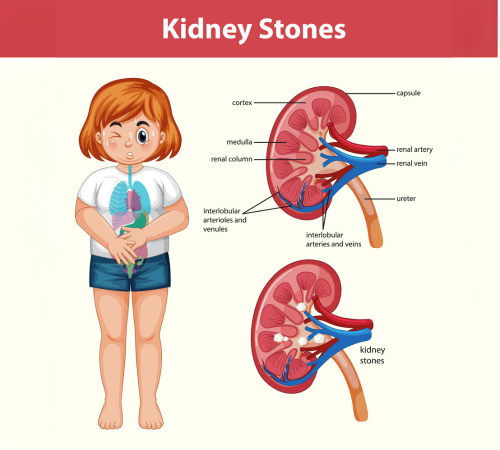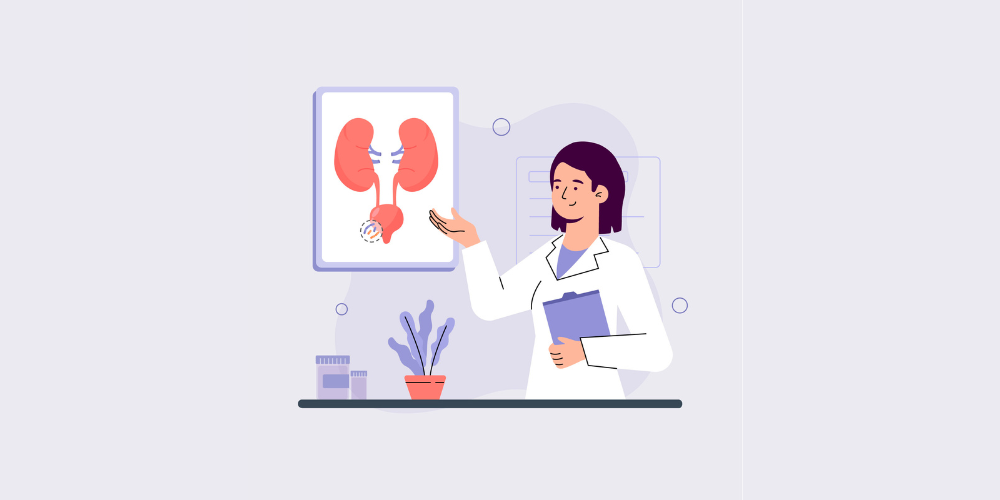Kidney Stones in Children
Kidney Stones in Children
Kidney stones in children are often caused by genetic predisposition, dietary factors, or metabolic abnormalities. Symptoms can include abdominal pain, blood in urine, or frequent UTIs. Dr. Anunaya Katiyar specializes in diagnosing and treating pediatric kidney stones using a non-invasive, child-friendly approach.
After thorough evaluation with ultrasound, X-ray, or CT scan, she identifies the cause and plans the most suitable treatment. Small stones may pass naturally with hydration and medication, while larger ones may require minimally invasive procedures. Dr. Katiyar also provides metabolic evaluation to prevent future stone formation.
She emphasizes lifestyle changes such as increased fluid intake, reduced salt, and dietary adjustments to manage and prevent recurrence. Her goal is to ensure comfort, safety, and long-term kidney health for children suffering from stone-related complications.


Key Pointers:
- Child-friendly diagnosis using ultrasound and imaging.
- Medical and dietary treatment for small stones.
- Metabolic evaluation to detect underlying causes.
- Preventive care to reduce recurrence.
- Minimally invasive options for larger stones.
- Guidance on lifestyle and hydration habits.
Frequently Asked Questions (FAQs)
What causes kidney stones in children?
Dehydration, dietary factors (like excess salt), genetic predisposition, or metabolic disorders.
What are common signs of kidney stones in kids?
Severe abdominal or back pain, blood in urine, nausea, or frequent urination.
How are kidney stones diagnosed?
Through ultrasound, X-ray, or CT scan depending on symptoms and urgency.
Can children pass stones naturally?
Small stones may pass on their own with hydration, but larger ones might require medical intervention.
How can kidney stones be prevented in children?
Adequate water intake, balanced diet, and regular check-ups if there’s a family history.
